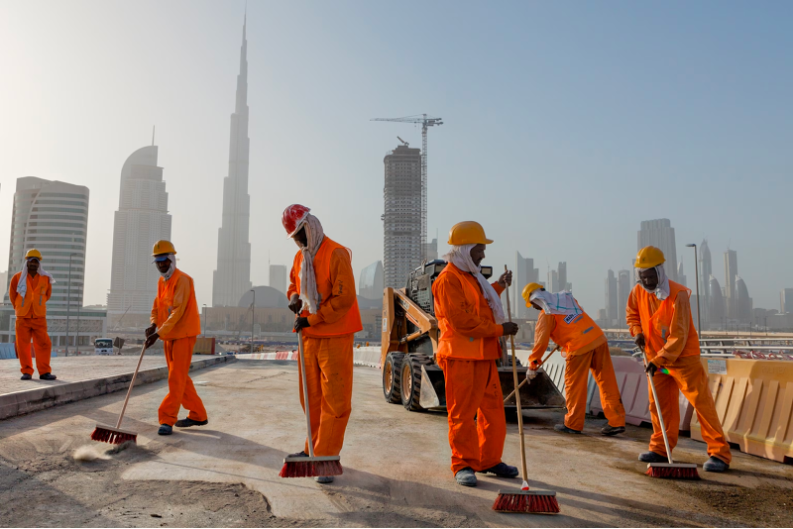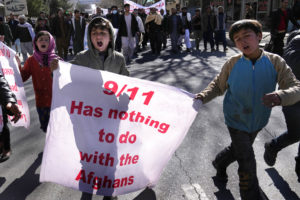
The Gulf Cooperation Council Countries consisting of Bahrain, Kuwait, Oman, Qatar, Saudi Arabia, and the United Arab Emirates have been inflicting forced labor on migrant labor workers for many years. Specifically, Dubai, an Emirate in the UAE, has seen a rapid growth in population from 1950 to 2023, going from 20,000 inhabitants to a staggering 3,008,000. Although this dramatic increase in population growth can be attributed to oil, as the oil and gas reserve in the UAE is the fifth-largest in the world, the main driving force behind the expansion of the city is the implementation of coerced labor work. Income disparity in Dubai has given rise to the creation of a modern day caste system. This economic and social hierarchy has placed labor workers at the bottom, where they have been denied basic representation and equal rights.
Dubai has been labeled as the “City of Gold” (CNN), as it has been characterized by its affluence, high-end shopping, lofty skyscrapers, and busy gold souks (Arab marketplace). An increase in construction to build such luxurious aspects of the city has engendered an increase in international tourism; in turn, a growing number of visitors have promoted the building of more extravagant projects, creating a cycle between construction and tourism which further contributes to the issue of forced labor work. To the eye, Dubai looks like the ideal travel destination, for it houses the tallest building in the world, the largest mall in the world, and an indoor ski resort to name a few. The physical beauty and luxury physically showcased throughout the city distracts residents and tourists from the corrupted inner workings of the government on labor policies and practices that have been made to create such an appealing facade.
Although Native Emiratis (people who are from the UAE) are the only inhabitants in the UAE who can obtain citizenship, the majority of people living in Dubai are expats. While Emiratis make up 11.48 percent of the population in the UAE, expats make up 88.52 percent. More specifically, in Dubai, Emiratis make up 15 percent of the population while expatriate residents make up around 85 percent. In addition, 90 percent of the private migrant workforce in the UAE come from the Indian subcontinent, specifically, India, Bangladesh, and Pakistan. Compared to the rest of the world, the UAE has the fifth-largest international migrant stock, as 7.8 million migrants make up the majority of the population in the UAE with approximately a total of 9.2 million inhabitants. According to these statistics, the high number of labor workers coming to Dubai from abroad are due to a high demand for construction work, a promise for higher pay, and better work opportunities.
The Kafala Sponsorship System in the UAE allows for migrant workers to find jobs in the country, however, the working conditions migrants are promised are not fulfilled upon arrival. Promises signed and mutually agreed to in contracts between employers and employees are denied when workers enter the country. Abusive and corrupt practices are implemented throughout the working schedule of employees, exploiting them for economic gain.
Employers have been known to take away the passports of their employees until they have completed their expected work. Although this practice has been outlawed in recent years, it has not stopped employers from continuing to confiscate passports. Some of the inhuman conditions migrant workers endure include the following: working in extreme heat conditions, living in inadequate housing arrangements (small rooms with multiple people), being denied salaries, sexual harassment, racial descrimination, poor medical aid, and more.
Thus, migrant workers in the UAE have had their rights violated and their labor exploited, as the country has been dependent on their work for the formation, development, and overall popularity of the country. These workers have been forced to live as second-class citizens to the other residents in the UAE, even though they are the backbone of the country. Although the UAE is commonly known to be an appealing place to live and visit, behind the curtain are the disregarded migrant workers forced to perform under degrading circumstances so that the city can flourish at the cost of their personal freedom.



